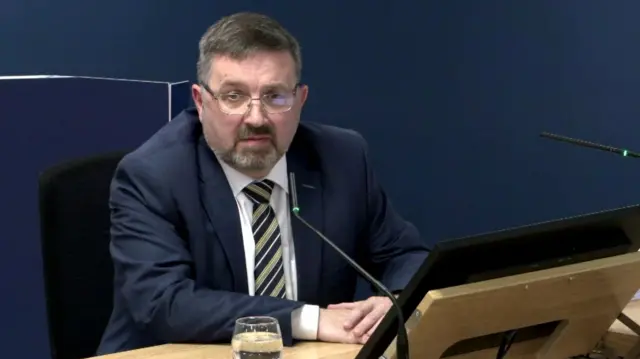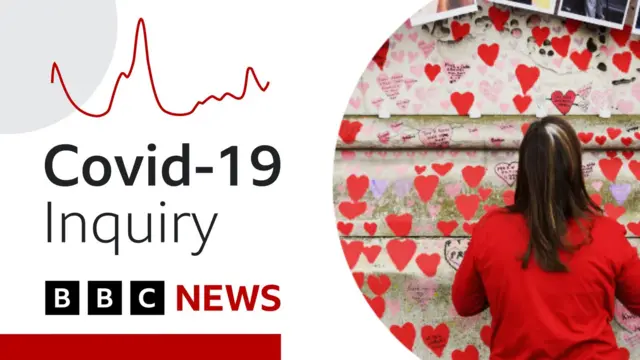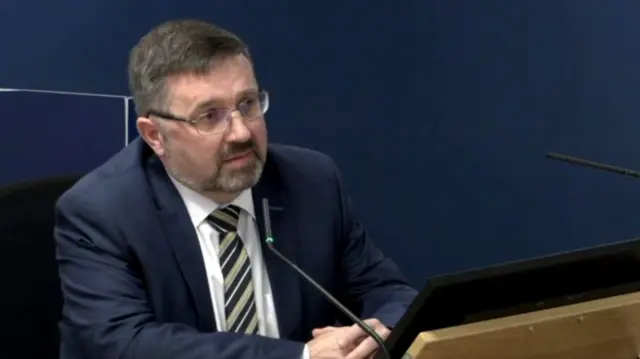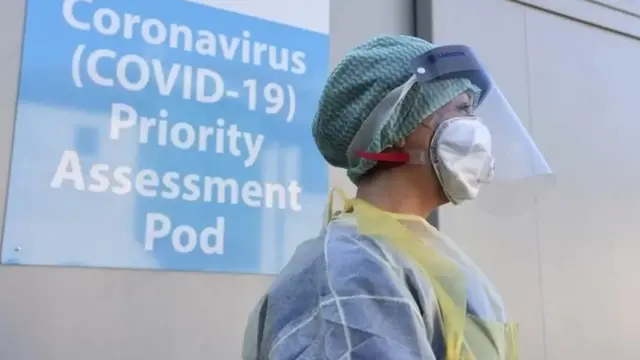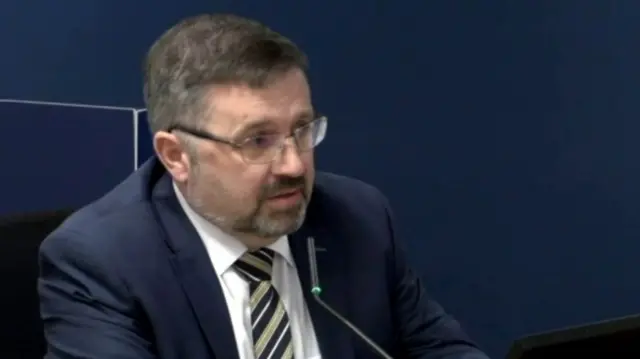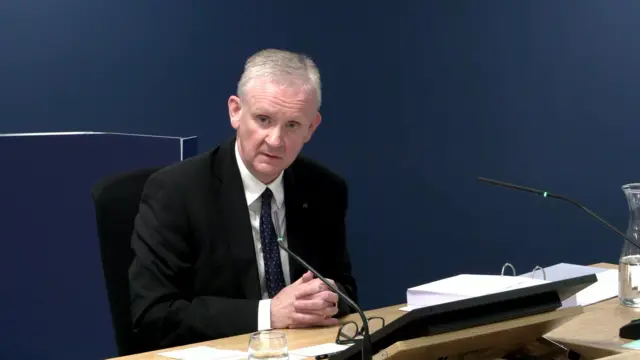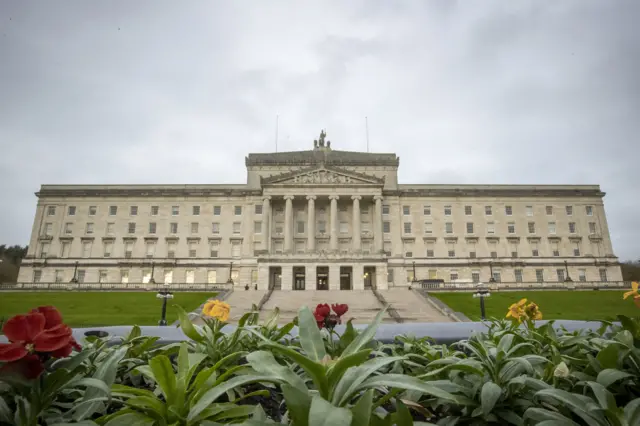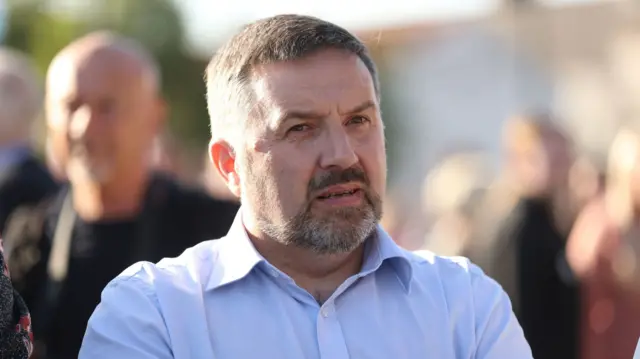What did we learn from Swann at Covid inquiry?published at 16:06 BST 6 July 2023
Northern Ireland's former health minister has finished his evidence session - so what were the headlines from him?
- Northern Ireland's health service suffered without political leadership at Stormont during the three years preceding the Covid pandemic, when the power-sharing government was not functioning, he said
- Decisions that could have improved the health system were "ducked" and the lack of reform and investment had an "adverse effect" on how Northern Ireland could deal with the pandemic
- Top health and science officials in Northern Ireland had limited involvement in the UK-wide response to the pandemic, with Swann saying they should have been allowed more input and been "equal" partners
With that, we are pausing our live coverage. Thanks for joining us.
